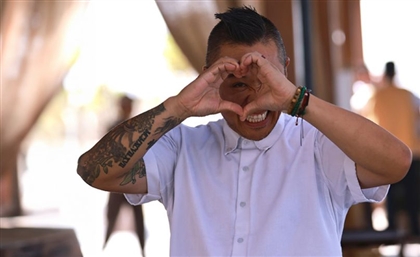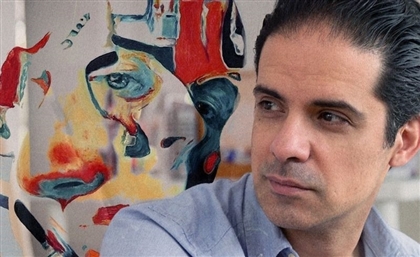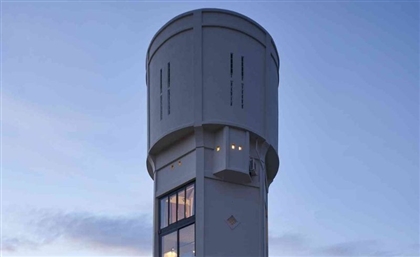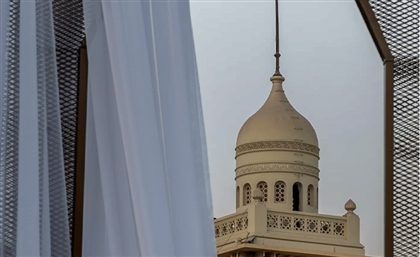Tables of Cairo Stages the City’s Histories at Cairo Food Week
Curated by Staged in collaboration with Abouzeid under the WHEN WE EAT concept, the 30-minute performance blends food, scent, textiles, and ritual into an immersive meditation.
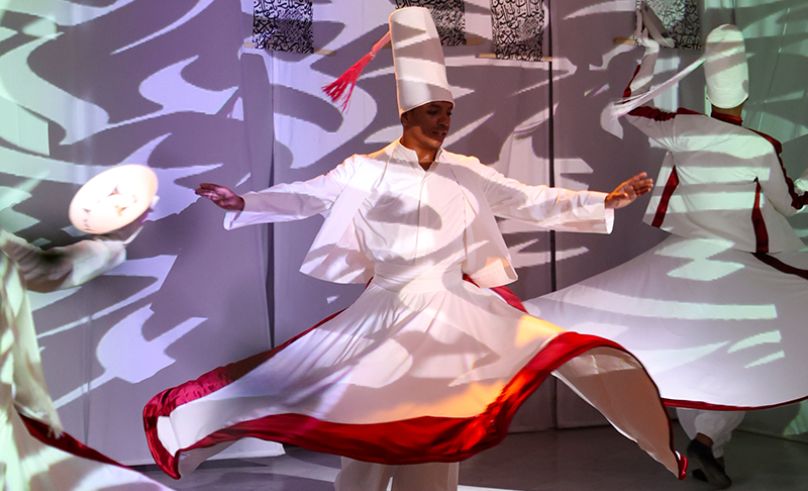
A dining table is a global staple, mundane, almost invisible in its everydayness. But at Cairo Food Week, it becomes both lens and stage, a place where history, ritual, and artistry converge.
With a single glance, its codes unfold: the guest’s seat of honour, the mismatched plates for children, the kind of spread that feels unmistakably Egyptian. Every table tells a story, and here it becomes a microcosm of food culture, a surface where memory, identity, and performance take shape.
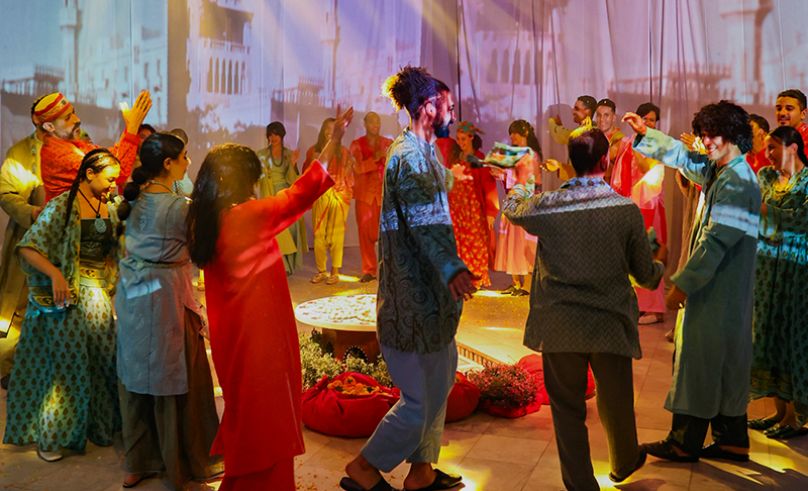 Now in its second iteration, Tables of Cairo turns its gaze to the intimacy of hosting and the choreography of table-setting, staged this year within the Islamic Ceramics Museum in Zamalek, an institution dedicated to preserving centuries of craftsmanship and daily ritual. Within its halls, the table is transformed into both archive and stage, a history lesson rendered through scent, sound, and taste.
Now in its second iteration, Tables of Cairo turns its gaze to the intimacy of hosting and the choreography of table-setting, staged this year within the Islamic Ceramics Museum in Zamalek, an institution dedicated to preserving centuries of craftsmanship and daily ritual. Within its halls, the table is transformed into both archive and stage, a history lesson rendered through scent, sound, and taste.
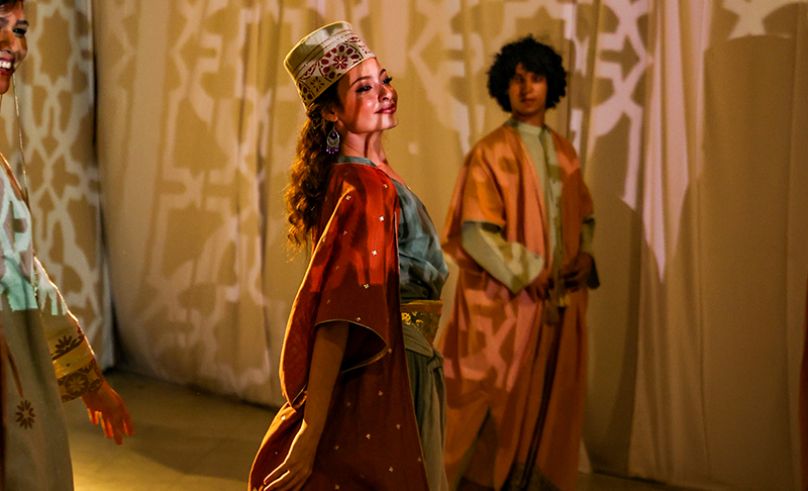 “This concept has always been about building bridges between the past and the present,” explains concept designer Hana Shash, “between the table as a place of faith and the table as a stage for cultural memory.”
“This concept has always been about building bridges between the past and the present,” explains concept designer Hana Shash, “between the table as a place of faith and the table as a stage for cultural memory.”
This chapter, Feasts of Faith, reimagines five pivotal eras of Islamic Cairo: Umayyad, Ayyubid, Mamluk, Ottoman, and Khedival, through the theatre of dining. Each act arrives as a sensory tableau: the humility of clay vessels and woven cloth in the Umayyad feast; the whirling devotion of Sufi-inspired offerings; the grandeur of Mamluk banquets served on monumental brass trays; the Ottoman blessing of smoke and incense; and finally, the communal sweetness of Khedival Eid kahk.
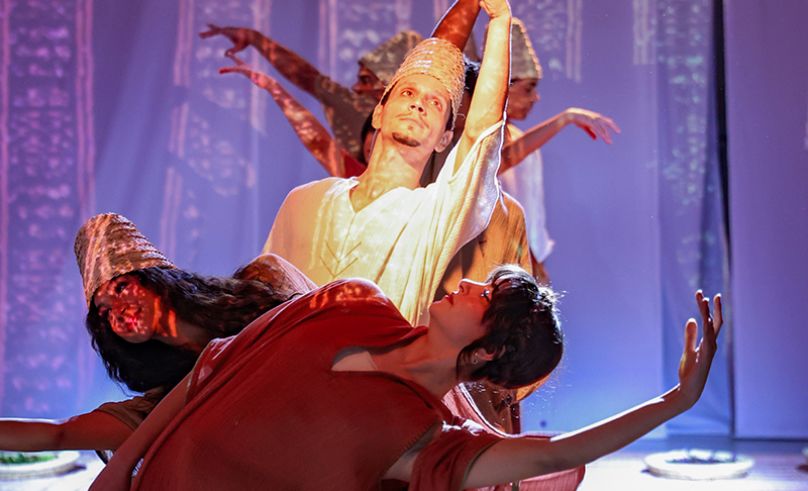 “I saw Feasts of Faith as a chance to move beyond static displays,” notes creative director and curator Rana Abouzeid, “to bring the spirit of Cairo’s Islamic eras to life as a theatrical journey of rituals, gatherings, and imagination.”
“I saw Feasts of Faith as a chance to move beyond static displays,” notes creative director and curator Rana Abouzeid, “to bring the spirit of Cairo’s Islamic eras to life as a theatrical journey of rituals, gatherings, and imagination.”
Curated by Staged in collaboration with Abouzeid under the WHEN WE EAT concept, the 30-minute performance blends food, scent, textiles, and ritual into an immersive meditation. Here, fragrance becomes prayer, vessels become storytellers, and the act of sharing a meal becomes a lens tracing histories and cultures.
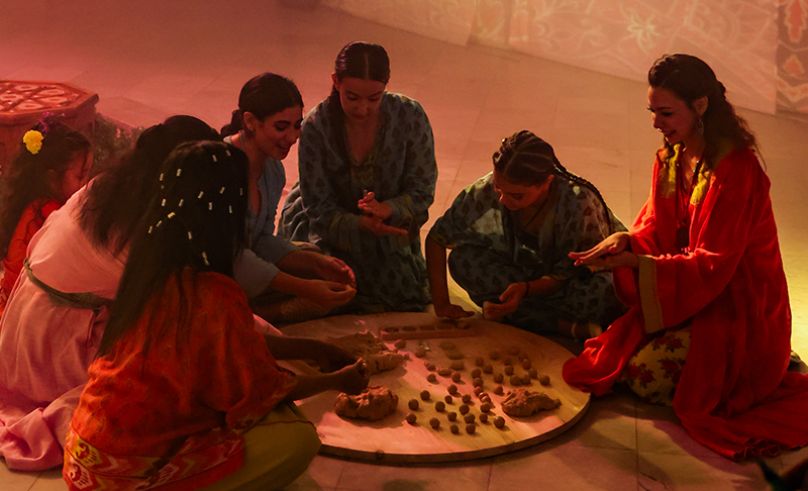 “The tables of Cairo carry with them a sense of nostalgia,” reflects Sara Kassem, founder of Staged. “They embody stories of gathering, sharing, and belonging that we long to reconnect with.”
“The tables of Cairo carry with them a sense of nostalgia,” reflects Sara Kassem, founder of Staged. “They embody stories of gathering, sharing, and belonging that we long to reconnect with.”
With costumes by Mix and Match and Kojak Studio, original compositions by Hesham Kharma, choreography by Shaymaa Shoukry of Dayer, pottery by Abracadabra, and food art by Cookery,, the table becomes a stage in the most literal sense, one through which our food stories are performed and witnessed.
- Previous Article الرابر الصاعد رامي يُطلق EP ابن طنطا".. 6 تراكات بروح الموسيقى الشرقي
- Next Article Monochrome Monday: Estate Blue
Trending This Week
-
Feb 16, 2026









